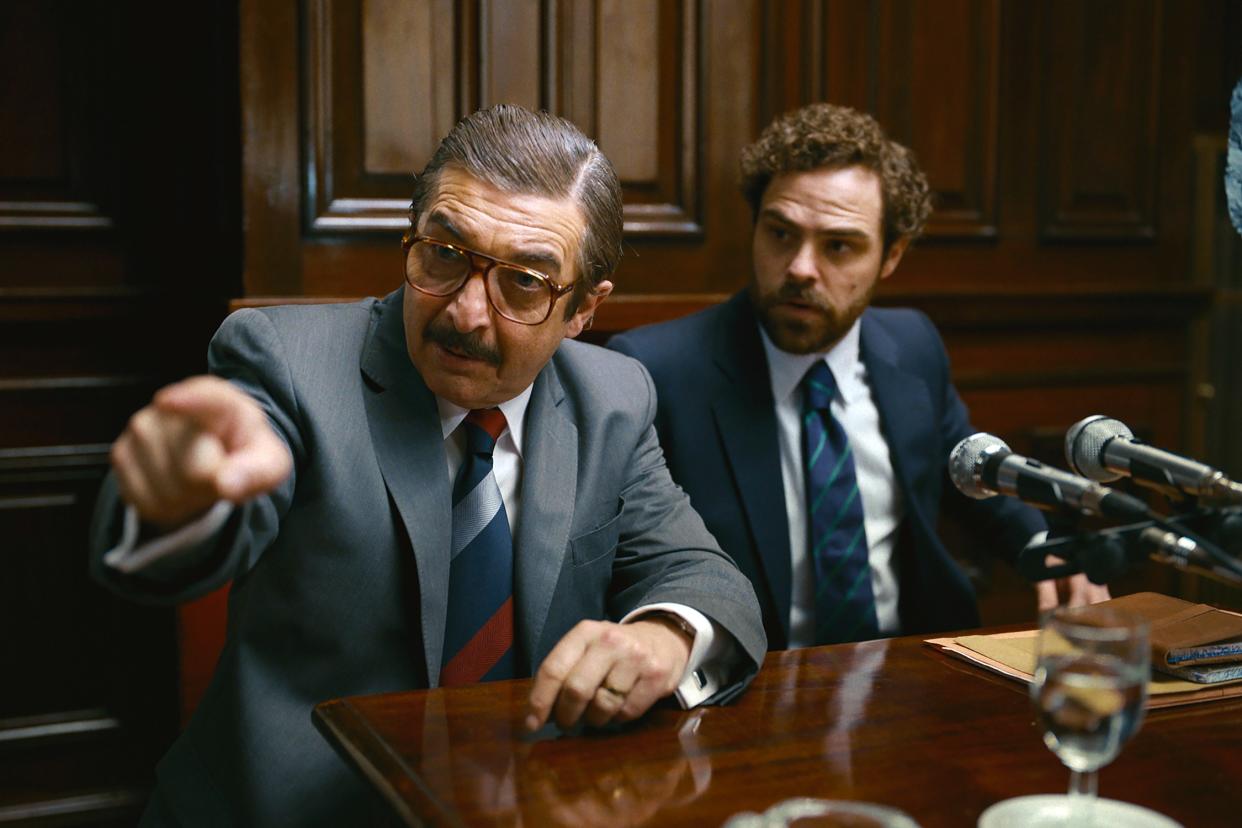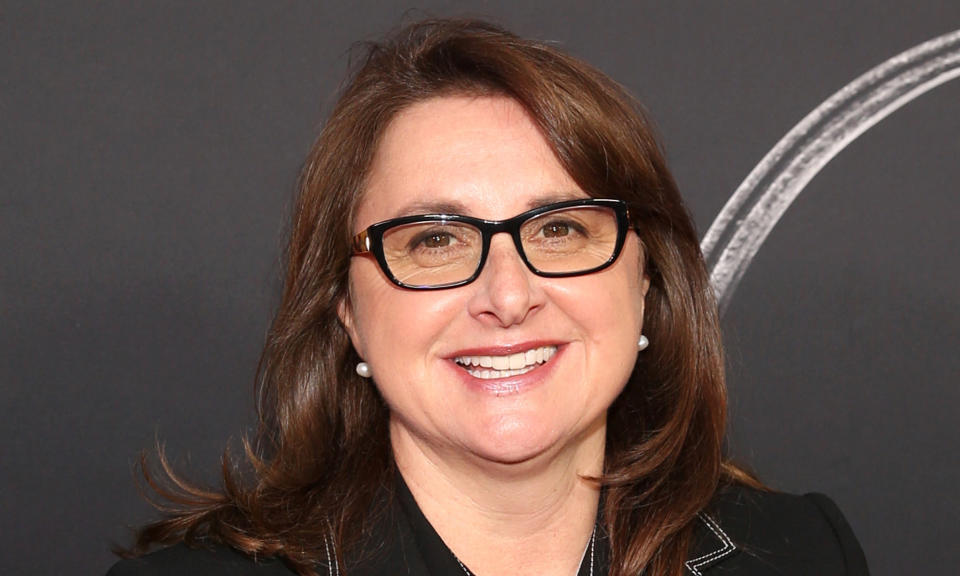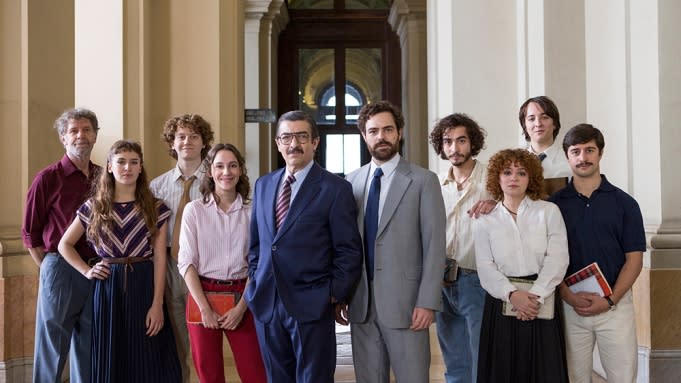Marvel Exec Victoria Alonso’s Other Job? Producing Oscar Nominee ‘Argentina 1985’

- Oops!Something went wrong.Please try again later.
When she was a teenager in Buenos Aires, Victoria Alonso never imagined being an executive producer at Marvel. And now that she’s spent 17 years at the studio, she could see “Black Panther: Wakanda Forever” being nominated for five Oscars — but she never envisioned that in the same year she’d also produce an Oscar-nominated international feature, “Argentina 1985.”
As Marvel’s president of physical production, Alonso spends her days meeting on multiple projects at every stage — from location scouts, casting, and visual development to costumes, visual effects, editing, score, and casting. “Every day is mayhem and a privilege,” said Alonso. “Every day is, ‘What happened now?’ And, ‘Oh my god, that is awesome.’
More from IndieWire
Moving 'The Marvels' to November Lets Disney Get Out of Its Own Way
Oscars 2023: Why You Felt the Sound of 'Top Gun: Maverick' in Theaters
Alonso always wanted to make her version of Luis Puenzo’s ‘The Official Story,” which won the Academy Award for Best Foreign Film in 1986. “I’ve made a lot of stories about superheroes,” she said. “And I’ve always wanted to tell a story about what happened in Argentina, because I should have been one of those 30,000 people.”
The “30,000 people” are the Argentinians who were “disappeared” during the military dictatorship of General Jorge Videla’s regime. As a teenager, she was an active protester against the policies of the military junta that kidnapped, tortured and killed untold numbers of Videla’s opponents.
“For some reason, they didn’t come after me,” she said. “But I was very vocal, very active. Looking back, I don’t think I knew exactly what going to a march or speaking up against the system meant. I used to keep running shoes in a bag and when the bomb threats come up, my sister and I would run home.

Courtesy Marvel Studios.
“Eventually what happens is your body finds a way,” she said. “If you didn’t normalize that moment, you couldn’t get through the day. We still had to go to school. People still had to go to work. People still had to parent, had lives to carry on, the world did not stop. So part of the humor that the movie is able to show you is: How sick was it? We figured a way that we could add some humor to such a deadly, consistent, painful, fearful moment in our history.”
Producer Axel Kuschevatzky persuaded Alonso to get permission from Disney and Marvel to help him to produce “Argentina 1985,” directed by Santiago Mitre (“Paulina”). It depicts the trial against the dictators, tracking veteran attorney Julio César Strassera (Ricardo Darín) who led the trial against the junta — and won.
“‘Argentina 1985’ has one voice that said ‘Yes’,” she said. “One attorney that brought another, and brought the young generation that didn’t even know what they had to lose in order to gain. What they gained was way beyond what they could have envisioned because all of a sudden we had justice. If there is one message to get out there to anyone young and not so young, is that your voice matters.”
With production during the pandemic, Kuschevatzky and Alonso produced virtually with their Argentina team on the ground. They staged the trial in the same courtroom where it took place and placed real survivors in the room, filming the faces of the victims and the accused. “We will see the pain of those who were hurt,” said Alonso. “And the pain of those being charged for the hurt that they had instilled in others.”
When Alonso first saw the rough cut, “I couldn’t talk for two days,” she said. “‘I can’t give you a comment.’ Because you have to take that shower of yesterday and get the strength to go back at it creatively. Emotionally, a lot of stuff comes back. So the challenges continue to be how to make a movie that speaks to the world, not just to our country, because democracy is at risk everywhere.”

Amazon Studios
Editorially, the trick was to not take sides. “The movie has no political party, except for the party of human rights,” she said. “[We asked], does it have to do with a systematic violation of human rights? So we stayed quite focused on that. This is why the movie has been so well received in the world, because it doesn’t take a side except for the side of life.”
When the film played in Argentina, “it was an incredible, incredible healing moment for our country,” said Alonso. “When it comes to politics and how we have hurt each other as a people, it’s really hard sometimes to show the struggle of a nation to others, where the rest of the world feels that those people don’t matter. The truth is some countries don’t affect others by having a history. It doesn’t matter whether we went through our own genocide or not. The real triumph of this movie is people are seeing it and they realize this is not just Argentina. It happened everywhere.”
Young people as well as adults flocked to Argentina’s cinemas. “We made it for the youth, they’re the ones that are the stopping point,” said Alonso. “They’re the ones that can say ‘no, nunca mas. This will never happen again. ‘No, why? Because we will rise. … you don’t get to kill me. You don’t get to torture me. You don’t get to rape me. You don’t get to take my kid. You don’t get to tear me in parts and put me under a freeway. You don’t get to kill me and throw me out of out of a plane into the river. That’s not as a society what we do to each other.”
The movie did get distribution around the world, and plays to even more people globally on the Amazon platform.
Best of IndieWire
Sign up for Indiewire's Newsletter. For the latest news, follow us on Facebook, Twitter, and Instagram.

